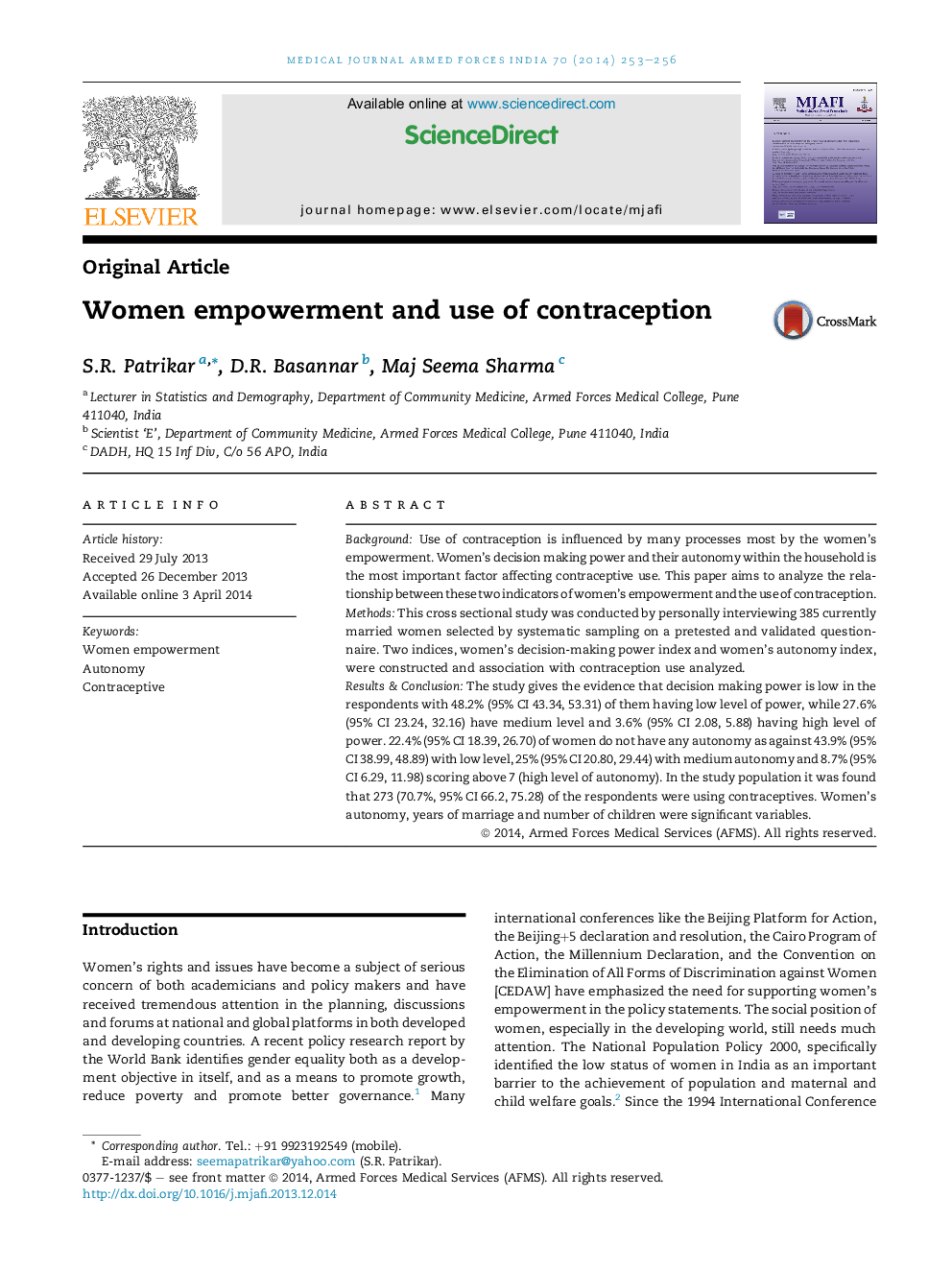| Article ID | Journal | Published Year | Pages | File Type |
|---|---|---|---|---|
| 3161372 | Medical Journal Armed Forces India | 2014 | 4 Pages |
BackgroundUse of contraception is influenced by many processes most by the women's empowerment. Women's decision making power and their autonomy within the household is the most important factor affecting contraceptive use. This paper aims to analyze the relationship between these two indicators of women's empowerment and the use of contraception.MethodsThis cross sectional study was conducted by personally interviewing 385 currently married women selected by systematic sampling on a pretested and validated questionnaire. Two indices, women's decision-making power index and women's autonomy index, were constructed and association with contraception use analyzed.Results & ConclusionThe study gives the evidence that decision making power is low in the respondents with 48.2% (95% CI 43.34, 53.31) of them having low level of power, while 27.6% (95% CI 23.24, 32.16) have medium level and 3.6% (95% CI 2.08, 5.88) having high level of power. 22.4% (95% CI 18.39, 26.70) of women do not have any autonomy as against 43.9% (95% CI 38.99, 48.89) with low level, 25% (95% CI 20.80, 29.44) with medium autonomy and 8.7% (95% CI 6.29, 11.98) scoring above 7 (high level of autonomy). In the study population it was found that 273 (70.7%, 95% CI 66.2, 75.28) of the respondents were using contraceptives. Women's autonomy, years of marriage and number of children were significant variables.
